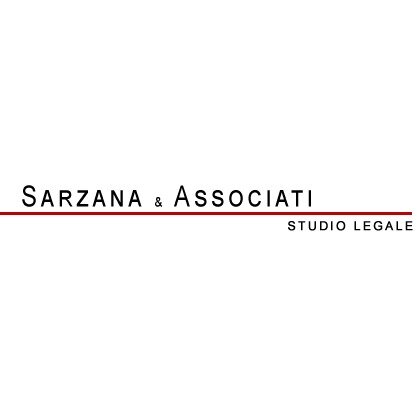Best Public-Private Partnerships (PPP) Lawyers in Rome
Share your needs with us, get contacted by law firms.
Free. Takes 2 min.
List of the best lawyers in Rome, Italy
About Public-Private Partnerships (PPP) Law in Rome, Italy
Public-Private Partnerships, commonly referred to as PPPs, represent collaborative agreements between governmental bodies and private sector entities for the design, construction, financing, and operation of public infrastructure or services. In Rome, as in the rest of Italy, PPPs have become a prominent mechanism for developing infrastructure such as roads, schools, hospitals, and public utilities. Italian PPP projects are governed both by national legislation and local regulations specific to the City of Rome and the Lazio Region.
PPPs are characterized by a division of risks, resources, and rewards between the public and private partners. These collaborations help to leverage private sector efficiency and innovation while addressing public sector infrastructure needs. Understanding the legal intricacies of PPPs in Rome is crucial for both public authorities and private investors.
Why You May Need a Lawyer
Engaging in PPP projects in Rome often involves navigating complex legal and regulatory requirements. Here are some common scenarios where legal assistance is critical:
- Preparing and negotiating contract terms between public authorities and private investors
- Ensuring compliance with Italian and local laws governing tenders, procurement, and public finance
- Addressing disputes or disagreements that may arise during the course of the PPP
- Advising on risk allocation, investment security, and responsibility sharing
- Guiding foreign investors through Italian bureaucratic processes
- Ensuring environmental, zoning, and urban planning requirements are met
- Assisting in financial structuring and project funding arrangements
- Representing clients in negotiations with local governmental agencies or during litigation
Because PPP arrangements can significantly affect long-term investments, professional legal advice is invaluable at every stage, from initial conceptualization to project completion and operation.
Local Laws Overview
The legal framework governing PPPs in Rome, Italy, is largely shaped by national legislation such as the Italian Code of Public Contracts (Legislative Decree 50/2016) and complementary rules at the regional and local level. Key aspects include:
- Procurement Procedures: PPP projects are generally awarded through transparent and competitive tender processes, with strict guidelines for public announcements, bidder qualifications, and award criteria.
- Types of Contracts: Concession agreements, project finance initiatives, and leasing contracts are the most common forms of PPP contracts in Italy.
- Risk Allocation: Regulations require a clear allocation of risks (such as construction, demand, operational, and financial risks) between the public and private parties.
- Local Governance: The City of Rome and the Lazio Region may impose additional requirements or incentives aligned with urban development plans or specific public interests.
- Transparency and Anti-corruption: Ongoing monitoring, open disclosure, and anti-corruption measures are mandatory to ensure public interest is safeguarded throughout the project lifecycle.
- Environmental and Zoning Compliance: PPP projects must comply with rigorous environmental, zoning, and city planning laws, and often require dedicated studies and public consultation phases.
Expert legal counsel helps ensure all these legal requirements are met and helps streamline interactions with local authorities in Rome.
Frequently Asked Questions
What types of projects typically use PPP arrangements in Rome?
PPP arrangements are frequently used for infrastructure projects such as highways, public transportation, utilities (water, waste, energy), healthcare facilities, and educational institutions.
Is there a specific legal definition of PPP in Italian law?
Yes, Italian law provides a definition of PPP under the Public Contracts Code, encompassing various models where private entities collaborate with public authorities on public interest projects.
How are risks typically shared in a PPP in Rome?
Risks are allocated based on the parties' ability to manage them effectively. Financial, construction, operational, and demand risks are distributed to optimize efficiency and protect public interests.
What is the process to initiate a PPP project in Rome?
PPP projects generally begin with a public tender or an unsolicited proposal, followed by a competitive procurement process, negotiation, and contract signing with the selected private partner.
How are PPP contracts monitored and enforced?
Monitoring is conducted by specific public authorities to ensure contractual obligations are met. Enforcement mechanisms, audits, and periodic reviews are included in the contract terms.
Are foreign investors allowed to participate in PPPs in Rome?
Yes, foreign investors can participate in PPPs, but must comply with Italian legal and regulatory requirements, which may require partnering with local firms or fulfilling nationality restrictions for certain sectors.
What happens if a dispute arises during a PPP project?
PPP contracts usually outline dispute resolution procedures, which may include negotiation, mediation, arbitration, or litigation in Italian courts, depending on the contract terms.
What are the main legal risks in participating in a PPP in Rome?
Legal risks include changes in laws or policies, contractual ambiguities, delays in permits, and disputes regarding performance or payment. Comprehensive legal review mitigates such risks.
How long do PPP contracts typically last?
PPPs often involve long-term commitments, ranging from 10 to 30 years, depending on the project's nature and financing needs.
Does the government provide any incentives for PPP projects?
Yes, local and national authorities may offer incentives such as tax benefits, grants, or favorable financing to encourage private sector participation in priority infrastructure projects.
Additional Resources
If you are seeking more information or support regarding PPPs in Rome, the following resources may be helpful:
- City of Rome Urban Planning Department - Handles local regulations and planning for urban infrastructure projects
- Lazio Regional Government - Provides information, guidance, and support for regional PPP initiatives
- Italian Ministry of Infrastructure and Transport - Oversees national infrastructure policies and PPP frameworks
- ANAC (Italian National Anti-Corruption Authority) - Monitors transparency and compliance in public contracts and procurement
- Local Chambers of Commerce - Offers advice and resources for businesses interested in public contracts
- Industry Associations - Such as Associazione Nazionale Costruttori Edili (ANCE) and Associazione Italiana per la Partecipazione Pubblico Privato (AIPPP)
- Legal Publications and Academic Institutions - Offer research, seminars, and updates on PPP law and developments
Next Steps
If you are considering involvement in a PPP project in Rome or need clarification about legal requirements, consider the following steps:
- Identify the specific PPP opportunity or project of interest and evaluate its objectives
- Consult with a local lawyer or legal advisor experienced in Italian PPP law and procedures
- Gather all relevant documentation, such as project plans, tenders, and previous contracts
- Discuss your goals, concerns, and risk tolerance with your legal counsel
- Ensure full compliance with local and national regulations by leveraging expert legal support at every stage
- Stay informed about developments, incentives, and new regulations that could affect your project
Reaching out to a specialist lawyer will provide you with tailored advice, help you understand your rights and obligations, and maximize your chances of a successful PPP venture in Rome.
Lawzana helps you find the best lawyers and law firms in Rome through a curated and pre-screened list of qualified legal professionals. Our platform offers rankings and detailed profiles of attorneys and law firms, allowing you to compare based on practice areas, including Public-Private Partnerships (PPP), experience, and client feedback.
Each profile includes a description of the firm's areas of practice, client reviews, team members and partners, year of establishment, spoken languages, office locations, contact information, social media presence, and any published articles or resources. Most firms on our platform speak English and are experienced in both local and international legal matters.
Get a quote from top-rated law firms in Rome, Italy — quickly, securely, and without unnecessary hassle.
Disclaimer:
The information provided on this page is for general informational purposes only and does not constitute legal advice. While we strive to ensure the accuracy and relevance of the content, legal information may change over time, and interpretations of the law can vary. You should always consult with a qualified legal professional for advice specific to your situation.
We disclaim all liability for actions taken or not taken based on the content of this page. If you believe any information is incorrect or outdated, please contact us, and we will review and update it where appropriate.

















